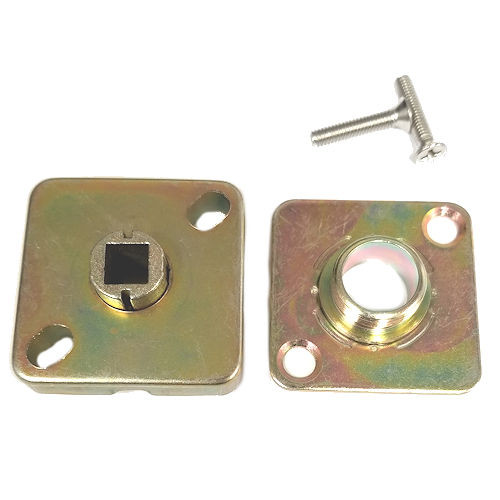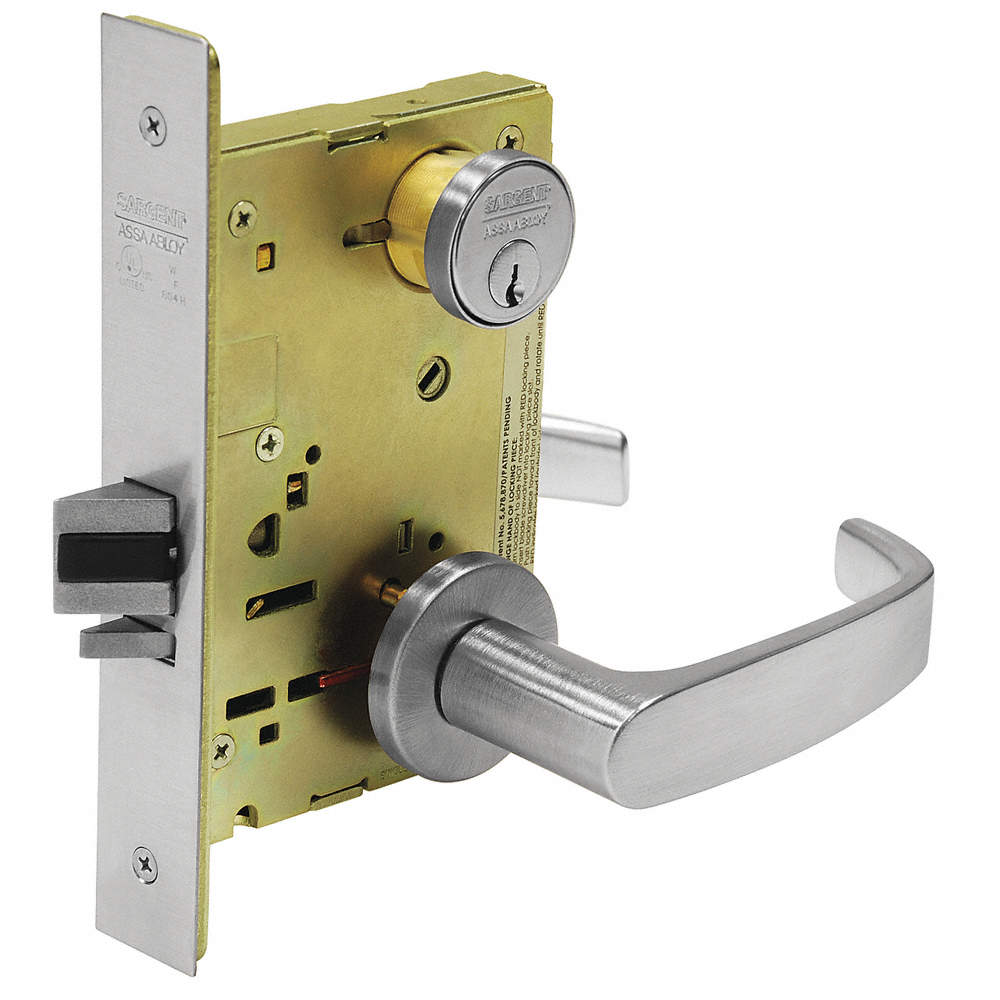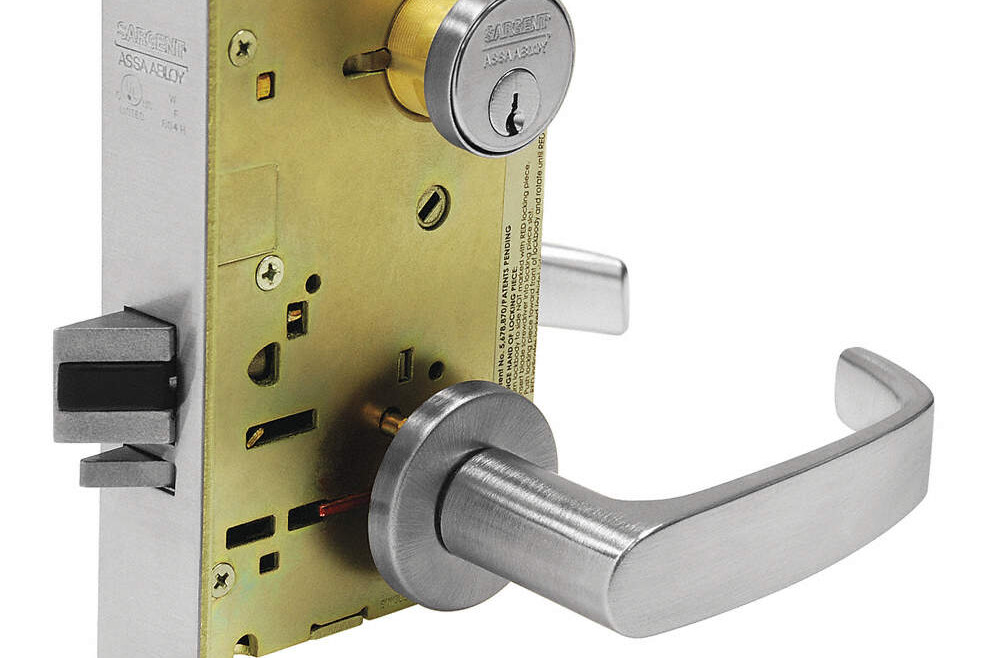Welcome to an edition of the Adventures of a Vancouver Locksmith. A series where we explore some of the more interesting jobs or situations we encountered. As one of the most popular locksmiths in Vancouver, I can’t cover everything I do in a month. So I will just include the stuff that I found interesting or something I think a commercial or residential client should keep an eye out for.
As always, if you need a professional locksmith that puts your needs first, please call or text me at 604-363-2760 or email me at alex@locksmithvancouver.com. We offer same-day service and the best warranty in town!
A quick update for my fellow Vancouverites living in towers like the Fairmont Pacific Rim Residences or the Jameson House with FSB Mortise locks. I had previously written an article where I said that we no longer had a supplier of FSB mortise locks for the Vancouver market since about 2019.
Fortunately, we have recently been able to procure a new source of FSB locks and door hardware. My latest order of FSB Mortise locks should arrive sometime in Fall 2022. If you live in a building with FSB mortise locks and are interested in a new lock, please call or text me at 604-363-2760 or email me at alex@locksmithvancouver.com.

They have increased in price by about 12.8% since I last purchased them. However, that’s not surprising given 2022’s high inflation and our weaker Canadian dollar vs the USD and the Euro.
Onto our first adventure, one of my clients in the Fairmont Pacific Rim Residences recently asked me to replace their FSB Mortise lock. It was original to the building and was difficult to latch. I could tell the lock case was the culprit as the springs felt “spongy” when the levers were depressed. Under normal conditions, the lever or knob springs should feel “snappy”. This is especially the case with FSB Mortise Locks.
Pretty much all the other mortise lock manufacturers supplement the lock case springs with a lever or knob spring cage. Schlage, Sargent, Colombo and others all have an additional spring cage that ensures the lever and latch returns to their original positions when the lever or knob is not depressed. If your handles are drooping slightly and are not parallel with the floor, the spring cage may be failing.
Replacing just the spring cage may or may not be possible depending on the brand. Colombo spring cages are the most readily available. The rest will depend on whether or not we have leftover spring cages from another job. If we don’t it will need to be custom ordered from the factory which will take 2 to 3 months.

FSB Mortise Locks generally do not have this problem as they don’t use spring cages. They just have a massive spring inside the lock case itself. This is good as you don’t have to worry about spring cage failure. However, it means that you may need to replace the entire lock case as in the case of my client.
For my Vancouver locksmith colleagues out there, newer FSB Mortise Locks can be distinguished by the handing screw near the hub. The older FSB Mortise locks came handed from the factory and could not be modified in the field without a complete disassembly. Anyone who has tried this knows this is not something you ever want to do. Also the handing screw sits on the secure side of the door, unlike Schlage, Sargent, and every other lock out there.
Newer FSB Mortise Locks seem to have a deadbolt that sits a tiny bit higher in the lock case than the old ones. Plus the handing screw is quite prominent, so modification to the strike plate/area will most likely be necessary.
In the end, my clients now have a snappy new lock (pun intended), the door latches perfectly every time, and the deadbolt works buttery smooth. Just the way all locks should.
If your lock doesn’t work that smoothly, give me a call or text me at 604-363-2760 or email me at alex@locksmithvancouver.com. It can be a real simple fix that will greatly extend the life of your locks!
Interestingly, a couple of months ago, I had another client at the Fairmont Pacific Rim Residences who had a fidgety FSB lock that could not be opened sometimes. The key would turn only part of the way, and the lock would not unlock.
Other times, it would work just as intended, so it was a bit of a mystery.
This was my 3rd time to this property for the exact same problem so I was determined to solve the mystery once and for all this time.
The client owned the adjacent unit, so on my previous visit, I switched the locks on the two doors. The main unit still suffered from this problem while the secondary unit did not. So it did not seem to be a hardware problem.
Just to make sure, I began by disassembling the lock and testing each main component separately. The lever spring felt a bit soft, but given the age of the locks in the building, that’s not an unusual occurrence.
As I was putting everything back together again, the client casually mentioned that their new dog likes to jump up and scratch at the door. Hence, there were a lot of scratch marks on the inside of the door, particularly around the handle. In addition, the screws holding the handles to the door were a bit loose.
Then it occurred to me that the dog was hitting the handle while pawing at the door and opening the lock partway. This is a problem as the lock mechanism would be stuck in a halfway position which would make it nearly impossible to unlock it the rest of the way from the outside with the key.
I tested my theory and lo and behold, the dog was the culprit! The client confirmed that these troubles began around the same time they got the new dog.
I surmise if the lock was in better condition, the dog could not have done this. A stronger spring would prevent partial unlocks and any force great enough to overcome the spring will “snap” the lock into the unlock position.
Due to the “spongy” nature of the older lock, the dog was able to manipulate the lock unintentionally.The dog is a hunting dog variant and not that heavy, but still strong enough for a weakened lock spring.
I proposed two things to the client. First, we should replace the inside lever with a knob. That way, the dog’s paws would just slide off the knob and prevent similar incidents in the future. My second recommendation was to replace the mortise lock case. Both items will be arriving sometime in Fall 2022, and it should solve the problem.
To summarize, if you have an FSB Mortise Lock, I would highly suggest replacing it if it is more than 10 years old or if the lock actions are not as “snappy” as they used to be. We have now established a new supply route for FSB products, but no one knows how long it will last. Due to their relatively high price point, we can keep only a fairly low stock of items. So get them while you can.

As always, if you are in need of a knowledgeable Vancouver Locksmith who specializes in the locks of this fair city, call or text me at 604-363-2760 or email me at alex@locksmithvancouver.com. Discover why we have the highest repeat customer rate in Vancouver!



